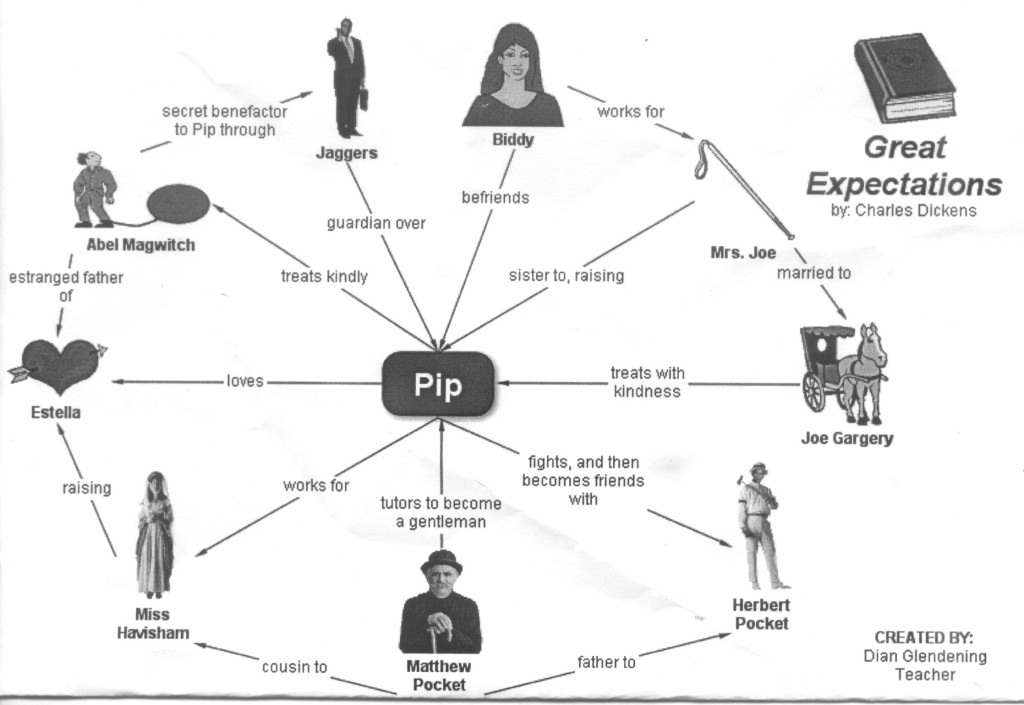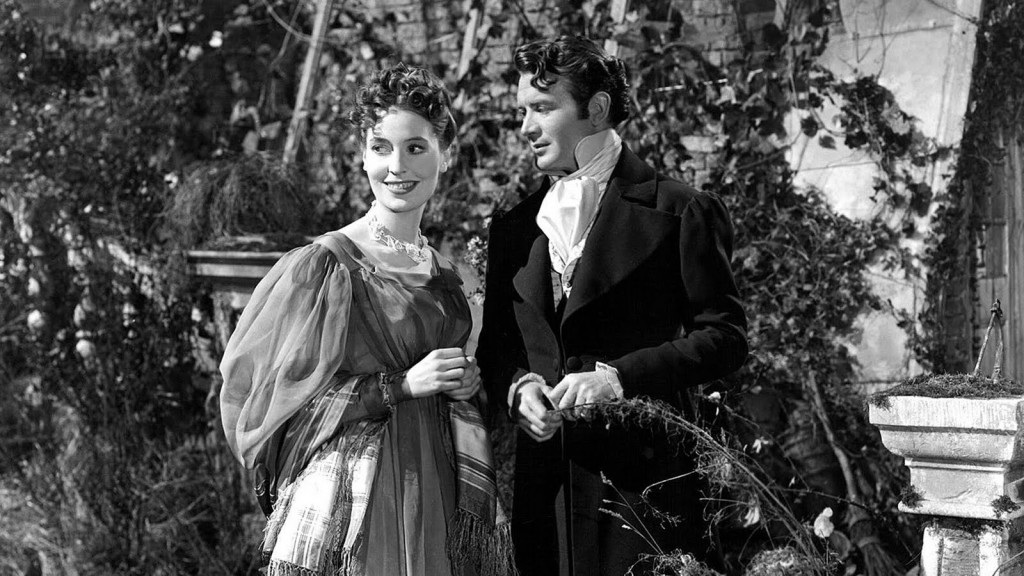Great Expectations

Charles Dickens’s
Great Expectations
Marginal Comments by bunpeiris
Great Expectations: the realization of a dream of a poor orphan. Oh! boy that’s a happy ending. Tell me that again, please. Okey, okey, hang on! The poor orphan boy makes its rich, makes his name, and wins the hand of the loveliest English rose. What’s more, he was even financed by an unknown benefactor. All you need is a a couple of fortunate coincidences. Well, in our real life, do we expect such good fortune fall into our laps? Well, as Rod Stewart sings [click the word in red] some guys have all the luck. Charles Dickens played to the mass market and nobody ever, till Dickens, had ever played the game so well. Well, W. A. Silva [Wellawattearachchige Abraham Silva][1890 – 1957], the English edcuated Sinhalese master story teller of British Ceylon [1815-1948] and then Free Ceylon [1948-1972] [as Sri Lanka was then known], writing in Sinhala, would take a leaf from Charles Dickens and produce a loveliest bouquet of novels: he too would have his hero find success and presents the readers with a happy ending by virtue of the good fortune of some timely coincidences: The Begger boy, The School Mistress, The Moon in the Wilderness, The Full Moon in all its Splendour are some of those. Then there were others of contrasting genres:The Silver Wig, The Illusive Times, The Replica of An Aristrocrat, Lakshmi or the Immortal Queen, The King of All Cosmos, The Kingdom of the Gods, The Pillage of King Vijayabahu, The Destiny, The Hand Offering Ambrosia and many others and translations of Ramayanya & 1001 Arabian Nights.
When Charles Dickens entered the literary scene in 1836, the vogue was monthly and weekly serials: novelists were successful in building reader involvement by means of installment approach or peacemeal approach. As I would see, Charles Dickens‘ success with Great Expectations too could also be attributed, at least partly, to the fact that it wasn’t at all published as a novel in the beginning, it was serialized in the local newspaper: he would invariably end the installment of this novel, each week, so apprpriately titled “The Great Expectations” , this work of Victorian literature on a cliff hanger raising the expectations of the readers higher and higher. These days Charles Dickens’s books are staples in literature classes worldwide.

We all have Great Expectations. Okey, some don’t. What do you call them, pessimists? Or do you call them realists? Never mind, Charles Dickens was a man ahead of his time. Well, cliff hangers are what you naver fail to see in our serialized Sinhalese teledramas today in Sri Lanka.
But then, I wouldn’t see our Sinhalese teledrams. Seeing the suffering [not only after the engagementring and weddingring, of course, even before that] of our own people in my sitting room, albeit in the digital screen or the idiot’s box, over and above my own suffering, is the thing I could hardly bear. Well, Dickens found a solution to my recurrent problem today, back then: he revised the ending, upon the suggestion of his wealthy aristocratic friend Edward Bulwer-Lytton, a hugely popular crime and historical novelist (no longer read today) whom he greatly admired and respected. The sad ending was deleted and happy ending was introduced. Well, I would go for that: make me entertained, give me a happy ending, give me song and dance as in Bollywood. I have seen enough of suffering.Why should I get sunk in rudderless despair in these seven seas sans cod liver oil or lost in the Great Saharan deserts sans dates? Let me wipe off Heart of Darkness (Joseph Conrad), Madame Bovary (Gustave Flaubert), Anna Karenina (Leo Tolstoy) and Tess of the d’Urbervilles (Thomas Hardy) off my desk. All are goddamitman heart-rending tragedies. I would have none of those anymore. I’ve had enough. I would have no more. Bodhisathva Avalokiteśvara (Lokeśvara) of Mahayana Buddhism is believed to extend his merciful hand towards the poor guys. I must pull the plug on blog and prey to the deity, this superior being, living in some other planet somewhere in this cosmos. Grant me a happy life, grant me the Nobel Prize for Literature in my next birth, in which I would be Kuslan [Sinhala: trophy] [surname unknown], once again in my motherland, as was in my previous birth. I wouldn’t leave Sri Lanka, my motherland even in my death, Insha Allah. Amen.
Written by bunpeiris

However, Great Expectations has always been rated among the very greatest of Charles Dickens’ achievements. What is the basis of its massive appeal?
Emotional power, for one thing; sheer page-turning dramatic tension, for another. Although it is not as uproariously funny or as blazingly angry as some of Dickens’ earlier fiction, it offers a compensatory depth of feeling, subtlety of tone and density of atmosphere – G K Chesterton praised its ‘quality of serene irony and even sadness which puts it quite alone among his other works’. It manages to be both extraordinarily perceptive about childhood, and maturely sceptical in its adult morality. The plot moves swiftly and surely, without any of the tired, flat patches of writing which mar A Tale of Two Cities or Our Mutual Friend. Its premise is simple: the orphaned Pip Pirrip is anonymously bequeathed a large amount of money which allows him to leave his humble background and live like a gentleman in London, until a surprise from his childhood catches up with him. On this basis, Dickens builds both a tautly constructed thriller and a moving story of disappointment and disillusion, told in the first person through Pip’s narrative voice, ruefully looking back at himself from some unspecified vantage point. Rupert Christiansen
Genre: Great Expectation is a Coming of Age Novel
Great Expectations is a bildungsroman, or coming-of-age novel. Other examples of this form include Jane Eyre by Charlotte Bronte, The Adventures of Huckleberry Finn by Mark Twain, and The Catcher in the Rye by J.D. Salinger. Great Expectations is unusual in that its main character, Pip, is often hard to sympathize with because of his snobbery and the resulting bad behavior he exhibits toward some of the other characters, like Joe Gargery.
Key Facts
Full Title: Great Expectations
Genre: Coming-of-Age Novel (Bildungsroman)
Setting: Kent and London, England
Climax: Pip discovers his patron is the convict Protagonist: Philip (Pip) Pirrip Antagonist: Orlick, Bentley Drummle, and Compeyson
Point of View: First person (Pip is the narrator)
Historical and Literary Context
Written: 1860-1861, Kent, England
Serialized : from 1860-1861; published: in 1861
Literary Period: Victorian Era
Satis House is a symbol of frustrated expectations. Ironically, the word “satis” comes from the Latin word for “enough”
Social background of Great Expectations
Great Expectations is set in early Victorian England. It was a period of transition in England: sweeping the nation were great social changes borne by the Industrial Revolution. Capitalists and manufacturers ventured into business and began amassing fortunes. Although social class was no longer entirely dependent on the circumstances of one’s birth, the divisions between rich and poor remained nearly as wide as ever. London, lit by gas lamps at night and darkened by black clouds from smokestacks during the day, was a teeming mass of humanity striving for better tomorrow, day after day. The urban zones formed a sharp contrast with England’s sparsely populated rural areas.
The villagers from remote areas began to flood the cities of England in search of better earning opportunities. Classical education has become the hallmark of the the upperclass in England; coupled with wealth, the transformation gave rise to strict and conservative life style making the behaviour of the elite, elaborate in innumerable social situations. Herein lies the transitory social background that defined Dickens’s time that made manifestations in almost every facet of Great Expectations.
“…it is a principle of [Matthew Pocket’s] that no man who was not a true gentleman at heart, ever was, since the world began, a true gentleman in manner. He says, no varnish can hide the grain of the wood, and that the more varnish you put on, the more the grain will express itself.” —Herbert Pocket
“Oh, there are many kinds of pride,” said Biddy, looking full at me and shaking her head; “Pride is not all of one kind…[Joe] may be too proud to let any one take him out of a place that he is competent to fill, and fills well and with respect.” Biddy

Great Expectations Relationship Map
Glossary
Franks and Frisians Germanic tribes united in opposition to the Geats.
Hugas a Frisian subgroup or family.
Hetware joined with the Franks against Hygelac.
Merovingian pertaining to the Franks.
Ravenswood site (in Sweden) of major battle between Geats and Swedes.
Eofor and Wulf fought Swedes’ King Ongentheow to his death. For a chronology of the Geats’ feuds, see Chickering, pp. 361-62.
corn-chandler a corn merchant.
chaise-cart a lightweight carriage with two to four wheels that is drawn by one or two horses. It sometimes has a collapsible top.
fell among those thieves this is a biblical reference, referring to the unfortunate man in the parable of the Good Samaritan, Luke 10:30-35, who fell among thieves, was beaten by them, and left for dead. Pip feels that numbers and arithmetic are about as vicious to him as the thieves were to the man in the parable.
comes the Mo-gul over us a Mogul is one of the Mongolian conquerors of India and Persia. Joe uses this term to describe Mrs. Joe’s heavy-handed, despotic power over them as if she were some far-eastern prince.
myrmidons of Justice this is a reference to Homer’s Iliad. The Myrmidons were followers of Achilles. Here Pip simply means “policemen.” He is afraid he will be arrested for fighting with the pale young gentleman at Miss Havisham’s.
O Lady Fair a popular song of the time, written and set to music by the Irish poet Thomas Moore (1779-1852).
Cain or the Wandering Jew Pip associates Orlick with the Bible character Cain, Who bcame a fugitive and vagabond following his muderer of his brother Abel. Pip also associates Orlick with the Wandering Jew, a legendary medieval character who wandered the earth as punishment for his cruelty to Christ.
sluice-keeper sluices were floodgates that controlled the flow of water through the marshes. The sluice-keeper was responsible for managing these gates.
The two versions of Great Expectations: two endings
In his first version of his novel, Pip merely spots Estella, who has been forced suffer abuse from Drummle, at a dinner party. But in the 1863 edition, Charles Dickens’ revised the work to have his narrator report, after seeing Estella, “I saw no shadow of another parting from her”—an alteration about which critics have been split for more than a century.
Movie version of David Lean
With the revised ending, David Lean found a window to bring about dramatisim to the happy ending of Great Expectations. Meeting again in Miss Haversham’s mansion, the two face-off, Estella—hurt by her relationship with Drummle—determined to follow the path of Miss Haversham, to join her mentor in her obsession with the past. She argues she belong to where she was brought up and nowhere else.
In his fury, Pip tears down moth eaten, damp and dust gathered curtains down to the floor revealing that remains of Miss Haversham’s world is dust and decay physically as well as spiritually. Confessing that she has always been his hearthrob and declaring they belong to each other, Pip leads Estella by the hand off the dilipitated mansion.

Great Expectations movie directed by David Lean in 1946
https://www.youtube.com/watch?v=lmtfZaiPmis
Was the happy ending of The Great Expectations intended?
The original ending of Great Expectation wasn’t a happy ending: our hero fails to win the hand the light of his life, fire of his loins.
How was that face about by Charles Dickens? Why did he revise he Great Expectations to have a happy ending?
“The soul of a very long fiction should be pleasing.” wrote Charles Dickens good friend and fellow writer, Edward Bulwer-Lytton. Wilkie Collins, another close friend and author of The Woman in White, objected to the not-happy ending Dickens first wrote for Great Expectations: Estella married and widowed and has since then remarried and Pip remains single.
Charles Dickens then resorted to write a more conventional ending, which carries the implication that Pip and Estella will marry. Dickens seems content while writing a letter to Forster, explaining his decision to alter the draft ending: “You will be surprised to hear that I have changed the end of Great Expectations from and after Pip’s return to Joe’s……
Bulwer, who has been, as I think you know, extraordinarily taken with the book, strongly urged it upon me, after reading the proofs, and supported his views with such good reasons that I have resolved to make the change. “I have put in as pretty a little piece of writing as I could, and I have no doubt the story will be more acceptable through the alteration.” and “Upon the whole I think it is for the better.”
What do we have today?
The second ending or the happy ending has generally been published from Charles Dickens‘ time to our own, so that it is the one which most readers know.
Arguments for and agianst the revised ending [happy ending]
[1] Against: then
Charles Dickens‘ friend and biographer, John Forster, felt the original ending was “more consistent with the draft, as well as the natural working out of the tale.”
George Gissing called that revision “a strange thing, indeed, to befall Dickens” and felt that Great Expectations would have been perfect had Dickens not altered the ending in deference to Bulwer-Lytton.
[2] For: today
Today, though modern literary criticism is split over the matter, the happy ending has been held aloft with stronger arguments. Do you have arguments for this happy ending?
****************************************************************
[3] You guys, the readers
If you are sitting for OL or AL, you will only have the revised ending or happy ending in the prescribed version of your edition.
If you are an undergraduate you will have both endings in the prescribed edition of the novel Great Expectation. Read both ending and make your own conclusion. What’s mine? Well, I hate adult fairy tales. You may read and argue for the ending you would like, argue against the ending you wouldn’t like.
****************************************************************
A glimpse into an episode of the life of Dickens through The Great Expectations
As Charles Dickens began writing Great Expectations, he undertook a series of hugely popular and remunerative reading tours. His domestic life had disintegrated in the late 1850s however, and he had separated from his wife, Catherine Dickens. He was keeping secret an affair with a much younger woman, Ellan Ternan. It has been suggested that the reluctance with which Ellen Ternan became his mistress is reflected in the icy teasing of Estella in Great Expectation.
However, with the exception of above, Great Expectations does not draw from events in Dickens’s life, as Sylvère Monod pinted out; “at most some traces of a broad psychological and moral introspection can be found”
Background of Great Expectations
Great Expectations‘s single most obvious literary predecessor is Dickens’s earlier first-person narrator-protagonist David Coppefield. Great Expectations, on as well as David Copperfield keeps a tab on the moral development of a boy to man; relocation from rural environment to the London metropolis.
https://www.youtube.com/watch?v=0xJFrAA82mU
The lady deserted by her groom at the very altar
Pip is called in to play with her adoped daughter by a wealthy, forever in mourning and in bridal, by a women deserted by her groom. Mourning the would be husband who left her at the very altar, plotting in her dilapidated house, she would have her vengeance, in her own vile, on others. Fashioned by Miss Havisham, her adopted daughter isn’t either of a heart of a tender mould in spite of her beauty: she treats Pip with disdain and contempt. Encouraged by his own thought that Miss Havisham, in a way, would help him to become a gentleman and win the hand of his adopted daughter, Pip entertains Great Expectations. But then again, he finds he has aimed at the sky and wouldn’t even hit a tree: following months of regular visits to Satis House, Miss Havisham decides that Pip should be apprenticed to his brother-in-law, Joe. Pip works in the forge though unhappily, still diligently, struggling to better his education with the help of a Jane plain, kind Biddy.
Cain or the Wandering Jew
Pip finds no respite with Joe’s malicious day laborer, Orlick. One night, after an altercation with Orlick, Pip’s sister, is viciously attacked. She becomes a mute invalid. From her signals, Pip suspects that Orlick was responsible for the attack.
The change of fortunes
A long and lonely four years into Pip’s apprenticeship, a lawyer named Jaggers brings about a revealation: Pip may entertain Great Expectations of getting trained in the gentlemanly arts. A benefactor, who wouldn’t reveal his idenetity, had set aside funds. Pip is to leave for London, well groomed. Assuming that Miss Havisham is his benefactor, and he is destined to marry Estella, he visits her to say good-bye.
The apprentice blacksmith turned would be gentleman
In London, Pip befriends a young gentleman named Herbert Pocket. The two young men live beyond their means and fall deeply in debt. Pip sets up house with Herbert Pocket at Barnard’s Inn and makes friends with Mr. Jaggers’ clerk, Mr. Wemmick, and enjoys visiting him at his Castle.
He expresses disdain for his former friends and loved ones, especially Joe, but he continues to pine after Estella. He furthers his education by studying with the tutor Matthew Pocket, Herbert’s father. Herbert himself helps Pip learn how to act like a gentleman.When Pip turns twenty-one and begins to receive an income from his fortune, he will secretly help Herbert buy his way into the business he has chosen for himself. Pip is told the background of Miss Havisham and her ill-fated wedding day. He also is embarrassed by a visit from Joe.
The return of the convict
Several years go by, until one night a familiar figure barges into Pip’s room—the convict, Magwitch, who stuns Pip by announcing that he, not Miss Havisham, is the source of Pip’s fortune: he is the one for whom Pip had stolen Mrs. Joe’s Pork Pie and taken it to the graveyard in the church. He tells Pip that he was so moved by Pip’s boyhood kindness that he dedicated his life to making Pip a gentleman, and he made a fortune in Australia for that very purpose.
Pip is appalled, but he feels morally bound to help Magwitch escape London, as the convict is pursued both by the police and by Compeyson, his former partner in crime. This knowledge begins the change in Pip from ungrateful snobbery to the humility associated with Joe and home.
It’s a small world: Orlick reappears.
Orlick reappears in Pip’s life, employed as Miss Havisham’s porter, but is promptly fired by the lawyer Jaggers after Pip reveals Orlick’s unsavory past. Mrs. Joe dies, and Pip goes home for the funeral, feeling tremendous grief and remorse.
The wrath of a bride spurned by her groom
A complicated mystery begins to fall into place when Pip discovers that Compeyson was the man who abandoned Miss Havisham at the altar and that Estella is Magwitch’s daughter. Miss Havisham has raised and trained her in the craft of breaking the hearts of men. That would be as revenge for the pain her own broken heart caused her. Pip was merely a boy for the young Estella to practice on; Miss Havisham delighted in Estella’s ability to toy with his affections.
Miss Hamishm confesses; Pip forgives
As the weeks pass, Pip sees the good in Magwitch and begins to care for him deeply. Before Magwitch’s escape attempt, Estella marries an upper-class lout named Bentley Drummle. Pip makes a visit to Satis House, where Miss Havisham begs his forgiveness for the way she has treated him in the past. Pip forgives her. Later that day, when she bends over the fireplace, her clothing catches fire and she goes up in flames. She survives but becomes an invalid. In her final days, she will continue to repent for her misdeeds.
A Friend in need is a friend indeed
The time comes for Pip and his friends to spirit Magwitch away from London. Just before the escape attempt, Pip is called to a shadowy meeting in the marshes, where he encounters the vengeful, evil Orlick. Orlick is on the verge of killing Pip when Herbert arrives with a group of friends and saves Pip’s life. Pip and Herbert hurry back to effect Magwitch’s escape. They try to sneak Magwitch down the river on a rowboat only to be discovered by the police, who Compeyson tipped off. Magwitch and Compeyson fight in the river resulting in Compeyson getting drowned. Magwitch is sentenced to death, and Pip loses his fortune. Magwitch feels that his sentence is God’s forgiveness and dies at peace. Pip falls ill; Joe comes to London to care for him, and they are reconciled. Joe gives him the news from home: Orlick, after robbing Pumblechook, is now in jail; Miss Havisham has died and left most of her fortune to the Pockets; Biddy has taught Joe how to read and write. After Joe leaves, Pip decides to rush home after him and marry Biddy, but when he arrives there he discovers that she and Joe have already married.
As Magwitch’s fortune in money and land was seized by the court, Pip no longer has income. Pip promises to repay Joe. Herbert asks him to join his firm in Cairo; he shares lodgings with Herbert and Clara and works as a clerk, advancing over time.
Pip locates Estella and relocates her in her arms.
Pip decides to go abroad with Herbert to work in the mercantile trade. Returning eleven years later, Pip visits the ruins of Satis House and meets Estella, widow to the abusive Bentley Drummle. She asks Pip to forgive her, assuring him that misfortune has opened her heart and that she now empathises with Pip. As Pip takes Estella’s hand and leaves the ruins of Satis House, he sees “no shadow of another parting from her.”
More content to be added. I’ll be back.

Tuition Literature Cambridge OL

Tuition English Language Cambridge
